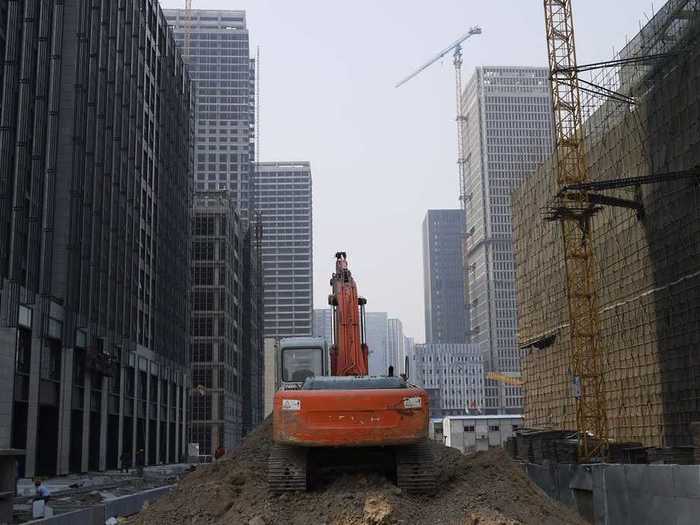45 Gorgeous Vintage Photos Of Macau From Before It Became A Gambling Mecca
Just to get you started, here's what Macau looks like today.

And here's what it looked like back in the day. This is Leal Senado, legislative seat during Portuguese rule, now home to the Institute of Civic and Municipal Affairs.
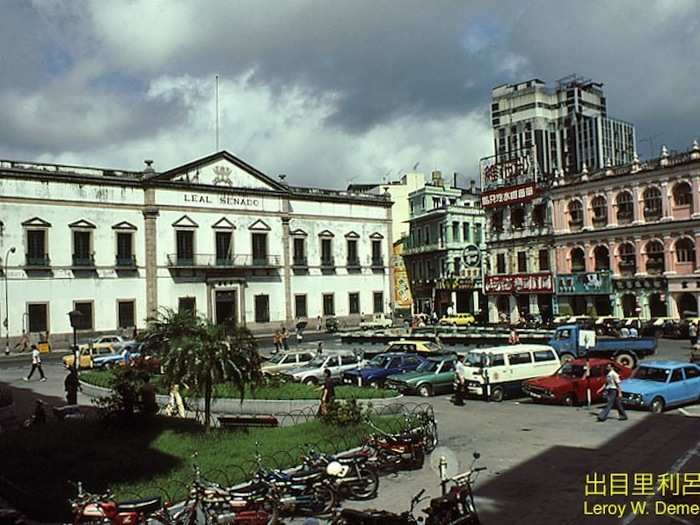
This section of the harbor is now reclaimed land, Demery says.
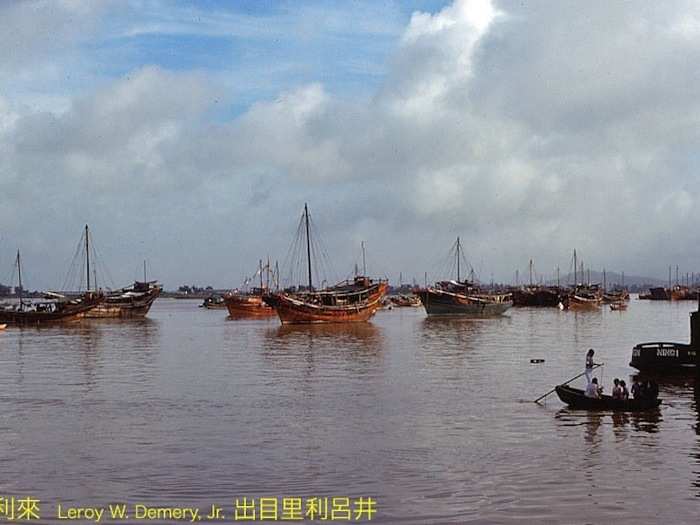
The Arquivo Historico. "The beginning of restoration work may be seen at right," Demery writes. "Today, the building appears in splendid condition."
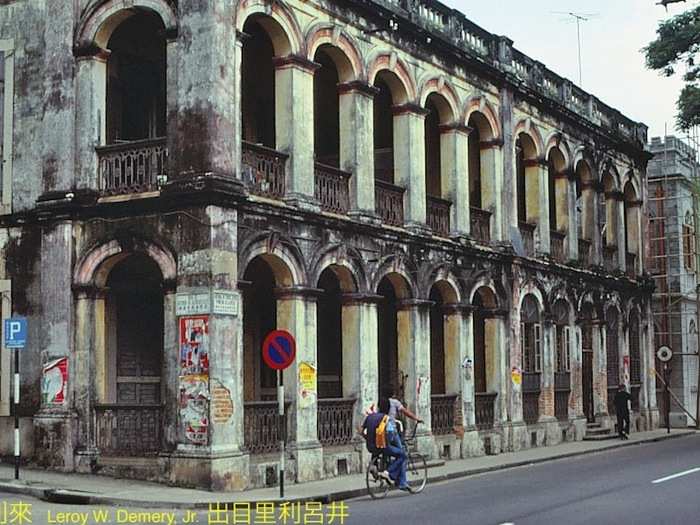
Outer Harbor, facing Taipa island, one of Macao's twin landmasses
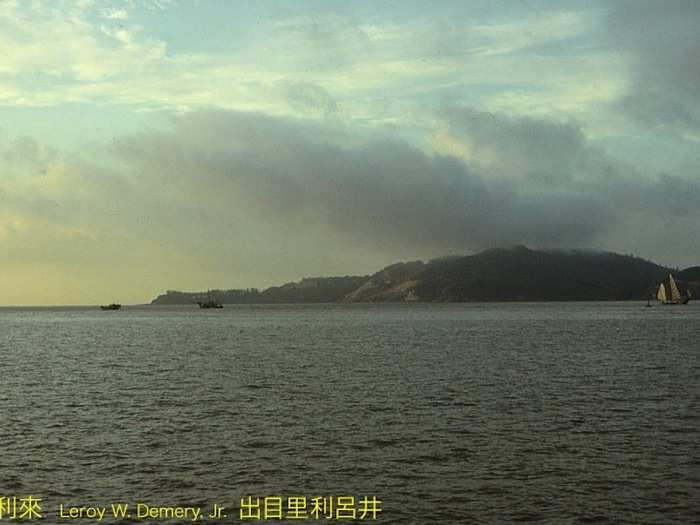
Taipa island from Macao peninsula. "This scene was transformed by construction of the second Macau-Taipa bridge, started in 1990 and completed in 1994," Demery writes.
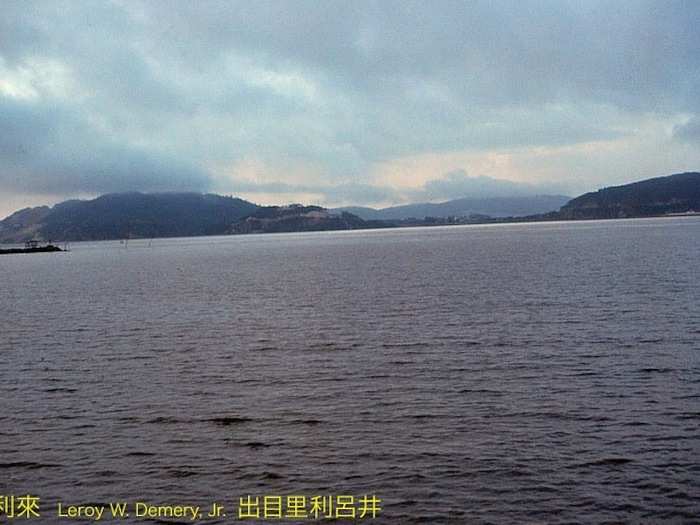
Taipa-Coloane causeway, completed in 1969 — five years before the first Macau-Taipa bridge was opened. "This is very much a 'vanished scene,'" Demery writes. "Land reclamation has created an entirely new town, Cotai, on what was once open water between the two islands."
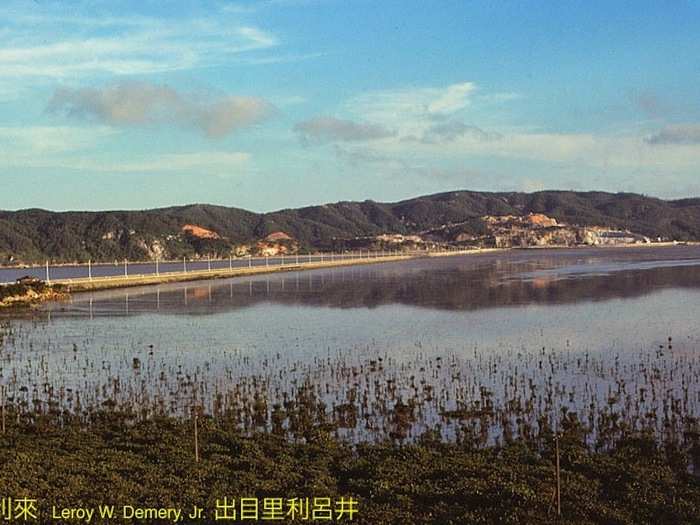
Breakwater/small boat moorage. The original Macau-Taipa Bridge (aka Ponte Governador Nobre de Carvalho) is in the background.
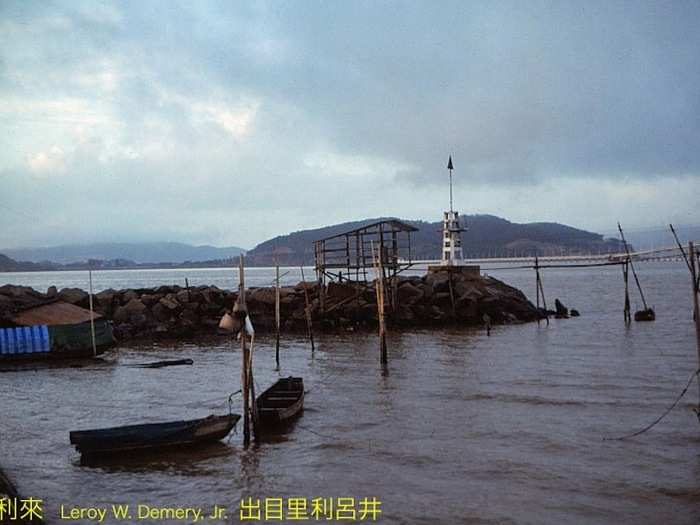
Penha Hill and Our Lady of Pehna Church. "Extensive land reclamation has transformed this scene dramatically," Demery writes. "The body of water at right was once part of the Bahia da Praia Grande ("Grand Beach Bay"). It has been enclosed and is now Lago Sai Van — Sai Van Lake.
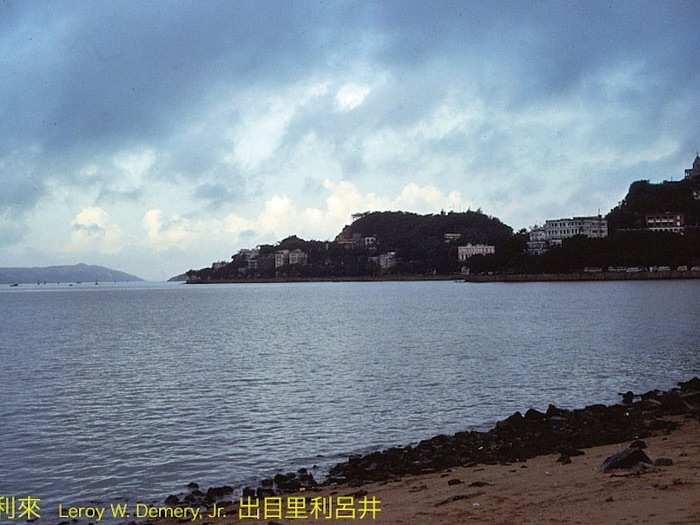
Hotel Lisboa, Casino Lisboa and Macau-Taipa Bridge
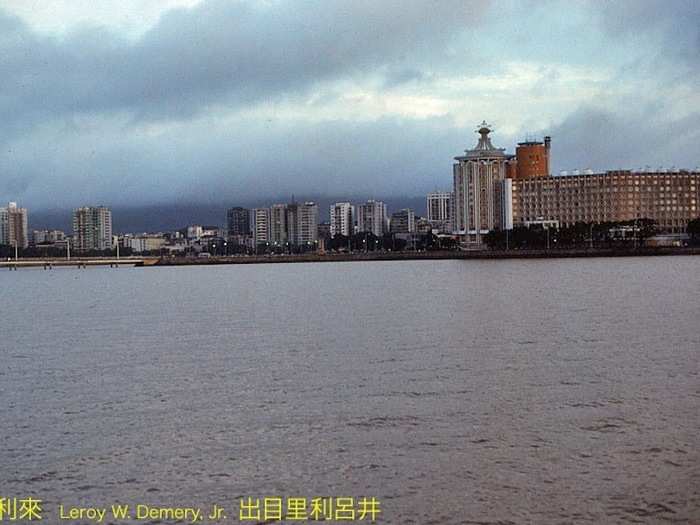
View across Bahia da Praia Grande — another "vanished scene," Demery says.
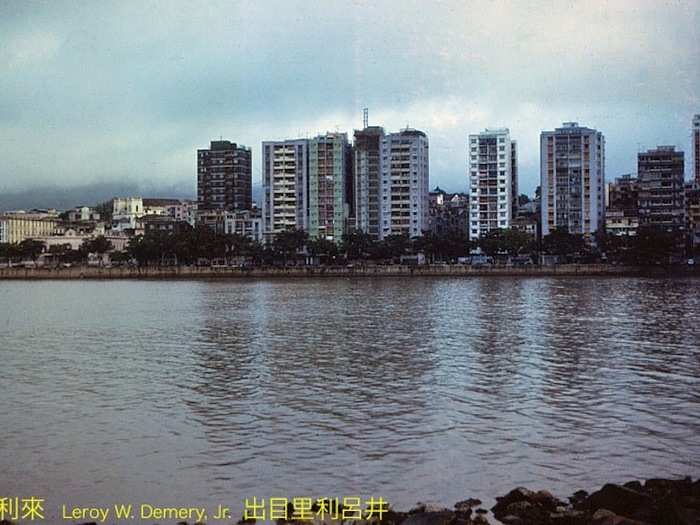
Near Avenida de Almeida Ribeiro at Largo do Senado/Senado Square. Demery says the buildings remain but have been renovated.
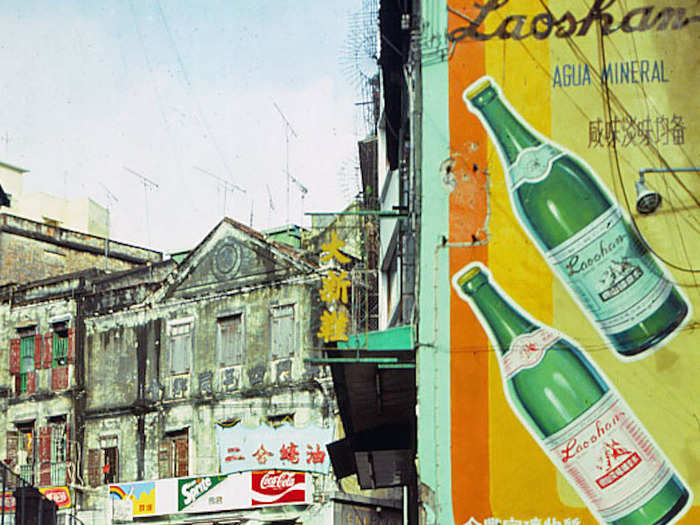
Porto Interior (Inner Harbor).
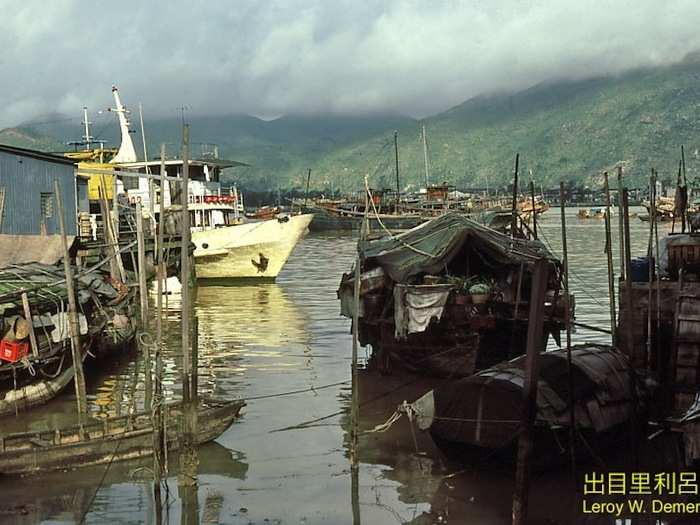
Entrance to the Macau Palace Casino.
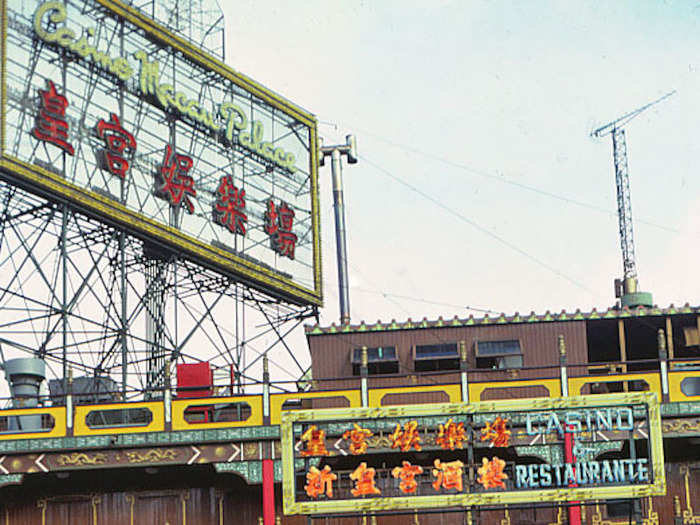
This is the Avenida de Almeida Ribeiro at Largo do Senado. The Avenida remains the main shopping street in the historic center of Macau.
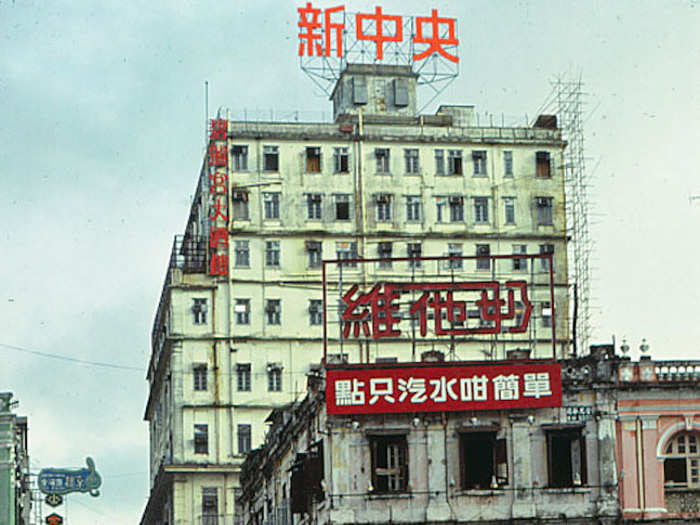
Another view of the casino.
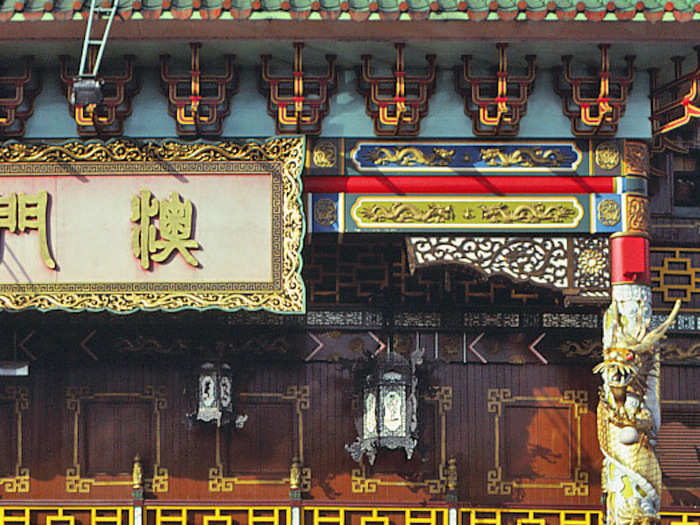
Narrow lane near Avenida de Almeida Ribeiro. "The 'uinquilharia Kei Mei Hong' remains in business today, in the Travessa do Matadouro," Demery writes.
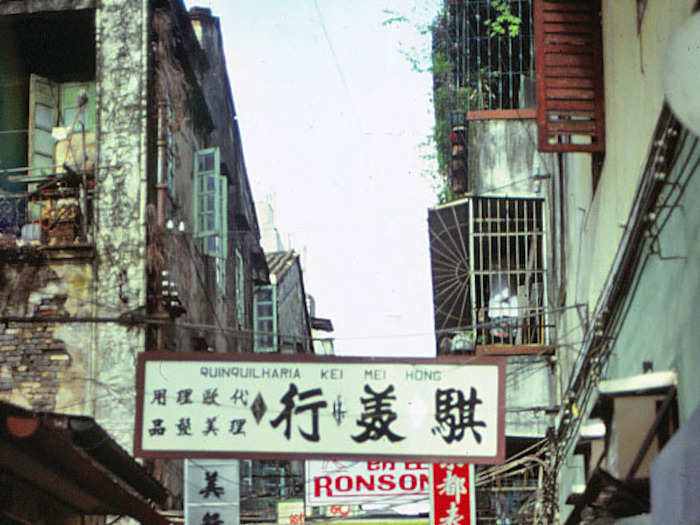
Demery says this is most likely a warehouse along the inner harbor.
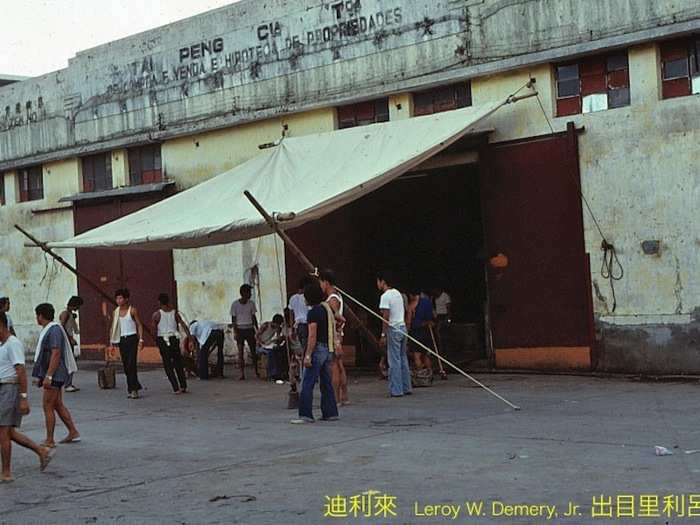
Near the southwestern extremity of today's Rua (Street) do Doctor Lourenco Pereira Parques.
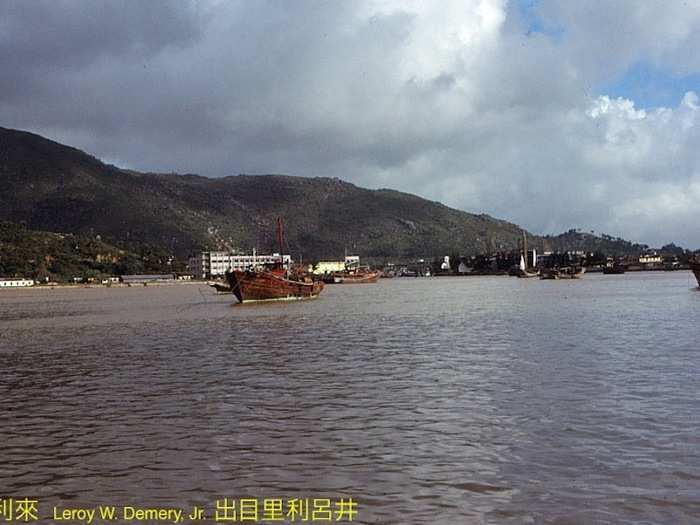
A Ma Temple, built in 1488.
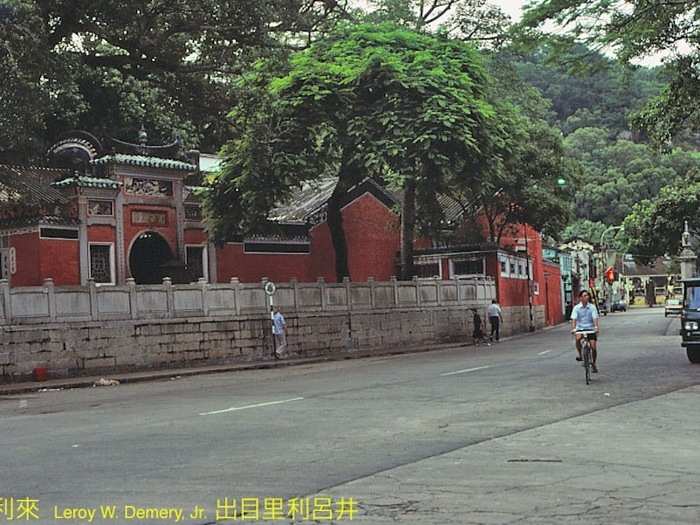
A Ma Temple entrance gate.
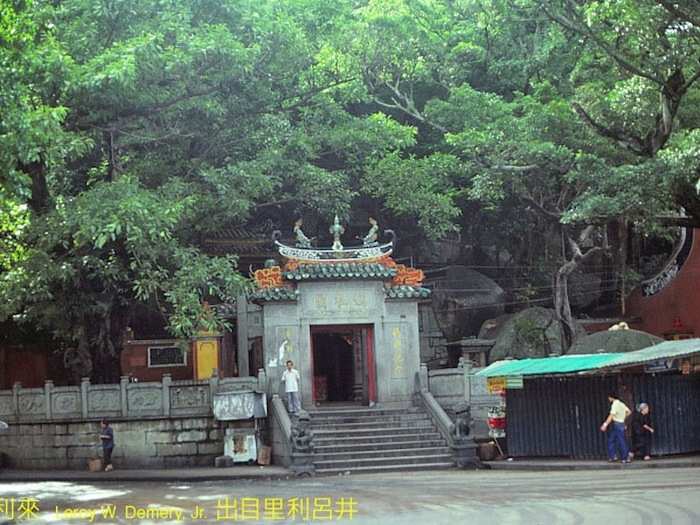
View across Porto Interior (Inner Harbor) to Yinkeng village. "The waterfront has been rebuilt as a park and a new road: Avenida Panoramica do Lago," Demery writes.
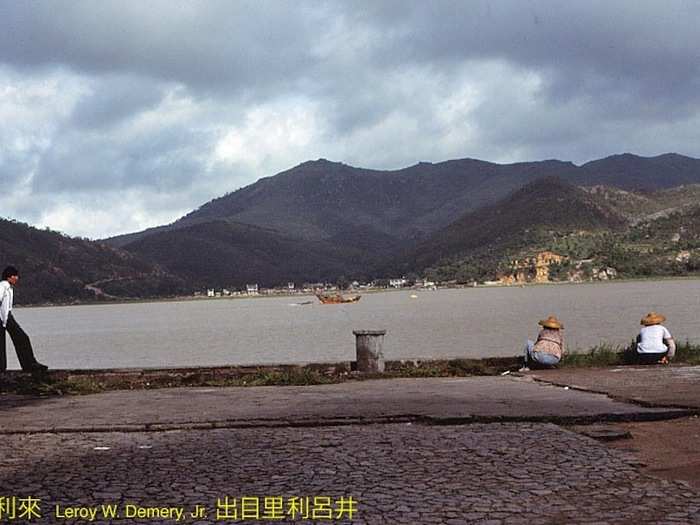
"This shack - certainly not approved by the 'local authority' - was located near the tip of the peninsula and the entrance to the Porto Interior (Inner Harbor)," Demery writes.
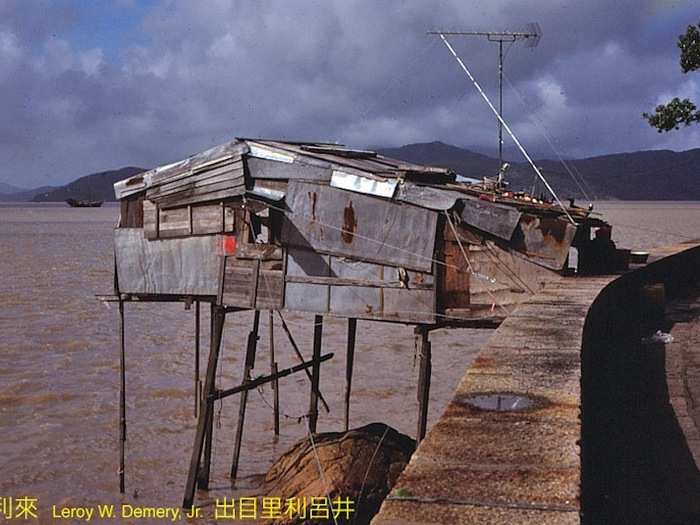
Palacete de Santa Sancha, the state guest house of the chief executive of Macau. Until reunification in 1999, this was actually the official residence of Macau's governor.
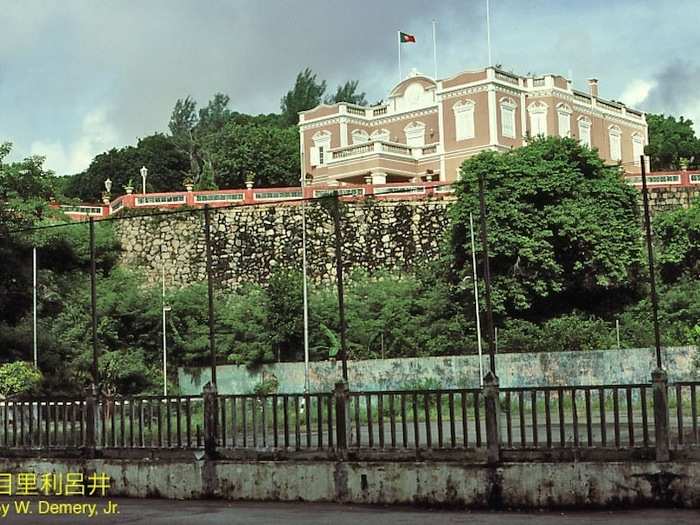
Penha Hill and church. "The buildings at street level remain, but the view of the view of the chapel has been blocked by new high-rise buildings," Demery writes.
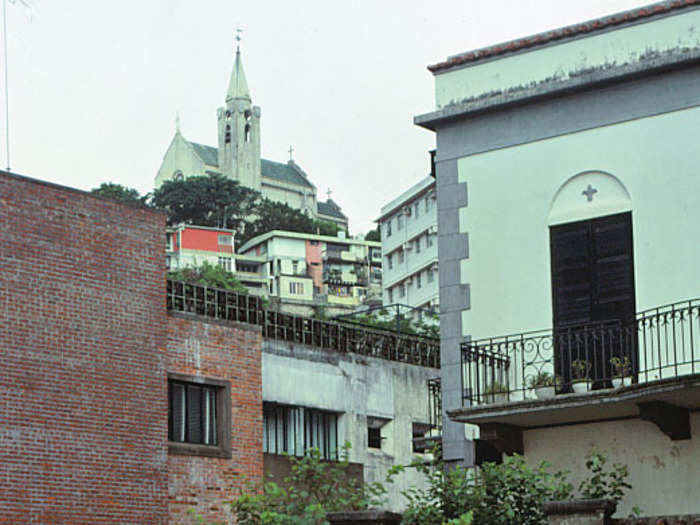
Residential lane.
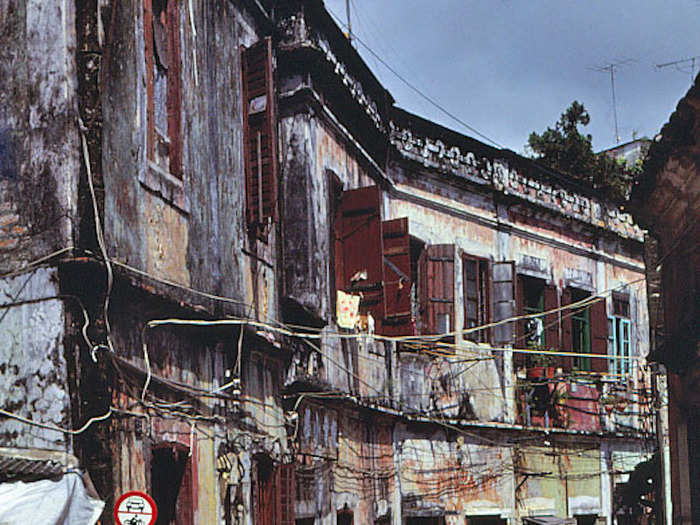
Narrow lane.
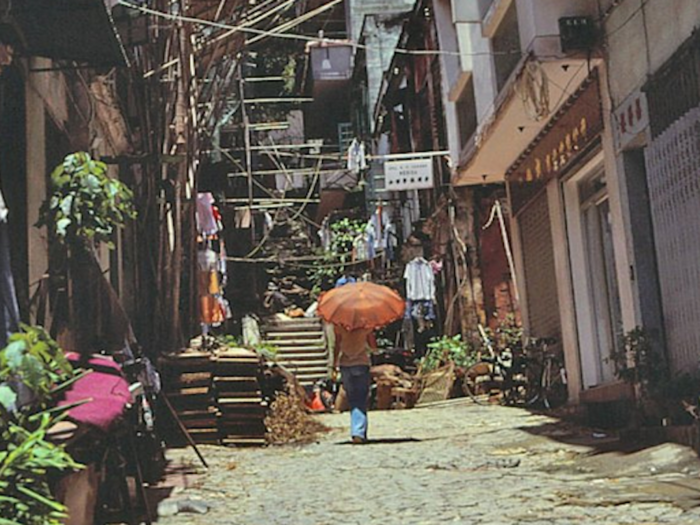
Universidade Internacional de Macau. "I am not certain where this building is located, or what it is used for...there does not appear to be a Universidade Internacional de Macau," Demery says.
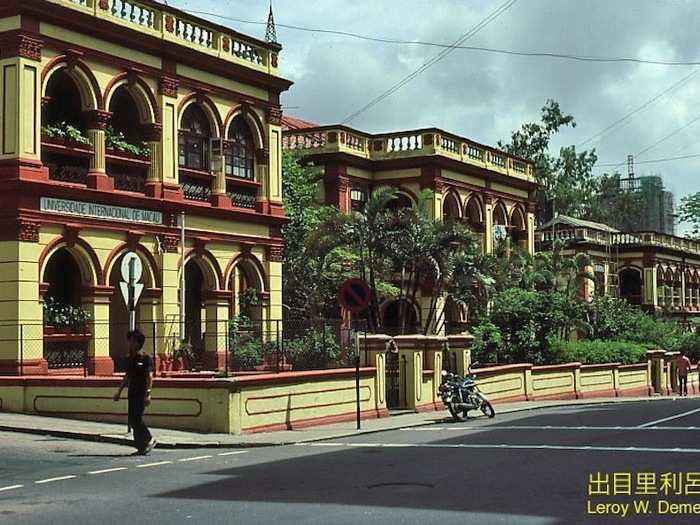
Sun Yat-sen Memorial House.
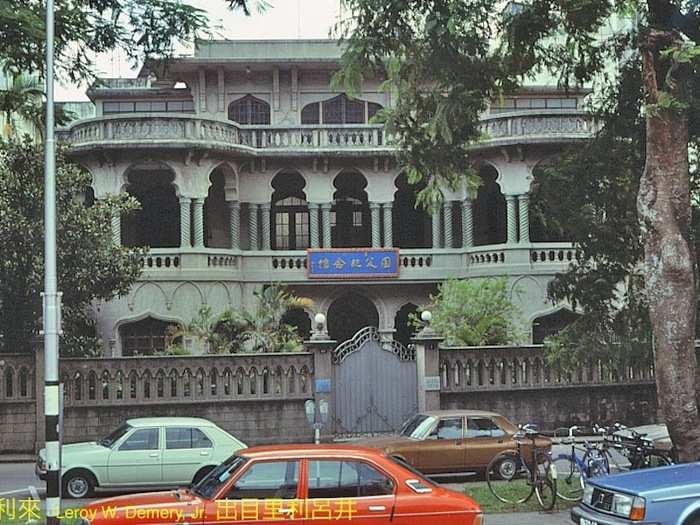
School children, probably somewhere between Colina da Guia and the Portas do Cerco.
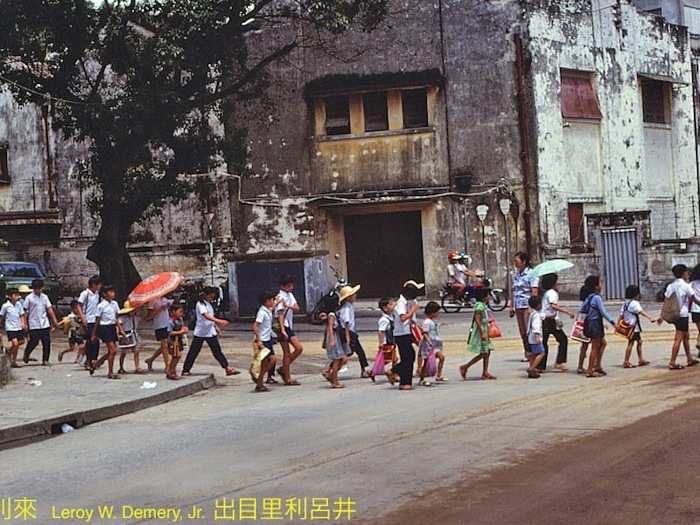
School children at Lin Fung Temple.
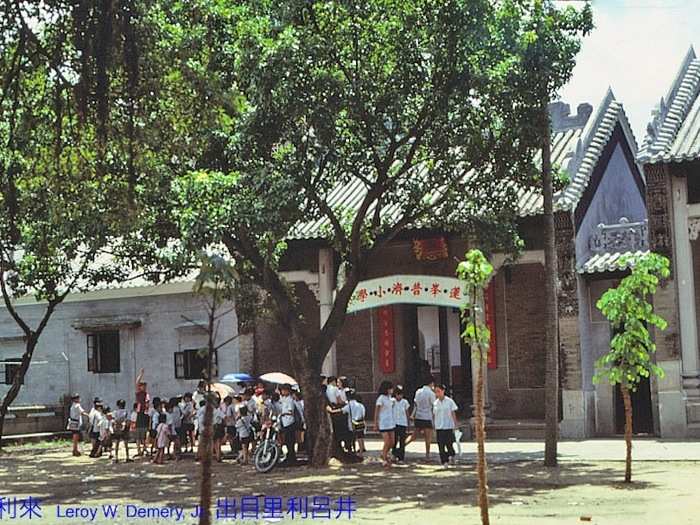
View of the Portas do Cerco (Barrier Gates) — the "frontier" between the mainland and Macau, Demery says.
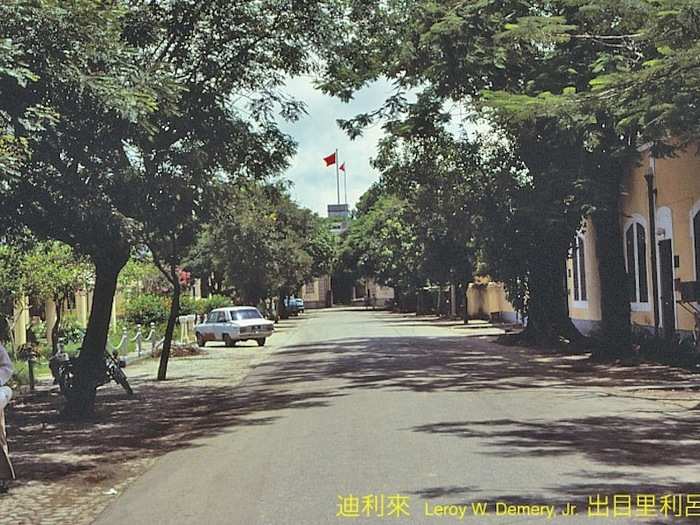
Lin Fung Temple, also known as the "Temple of the Lotus." The only temple of Taoist origin in Macao, it was founded in 1592 and is located in the northern part of the country.
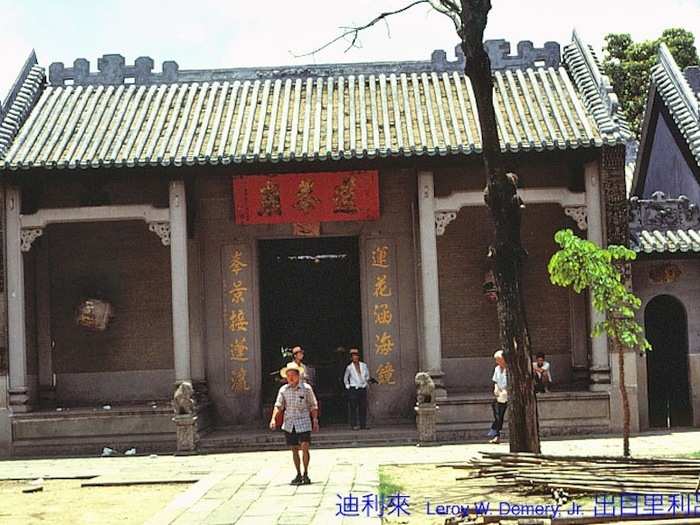
Residential lane, northern Macau.
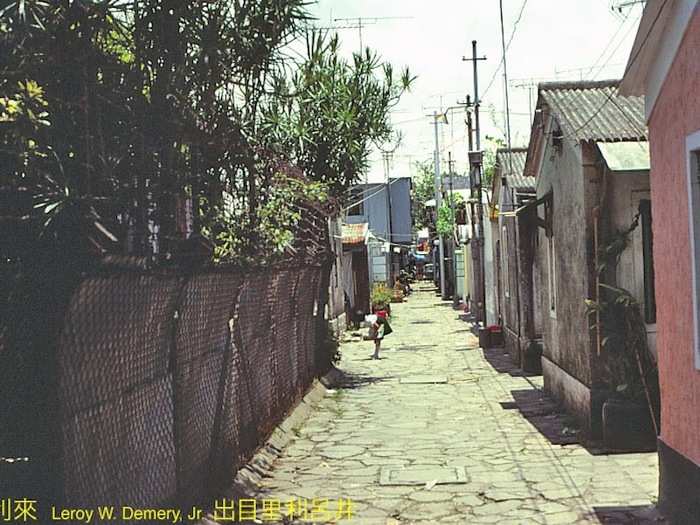
An inlet, probably north of Avenida do Almirante Lacerda. "The mountains in the background are on the Mainland. If the location is correct, then this is very much a 'vanished scene.' The 'inlet' was eliminated as part of a land reclamation project," Demery writes.
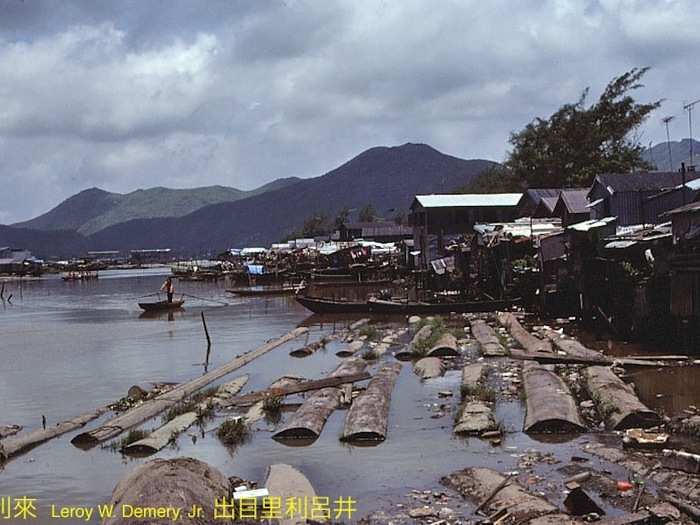
Narrow lane, probably located near the Ruínas de São Paulo.
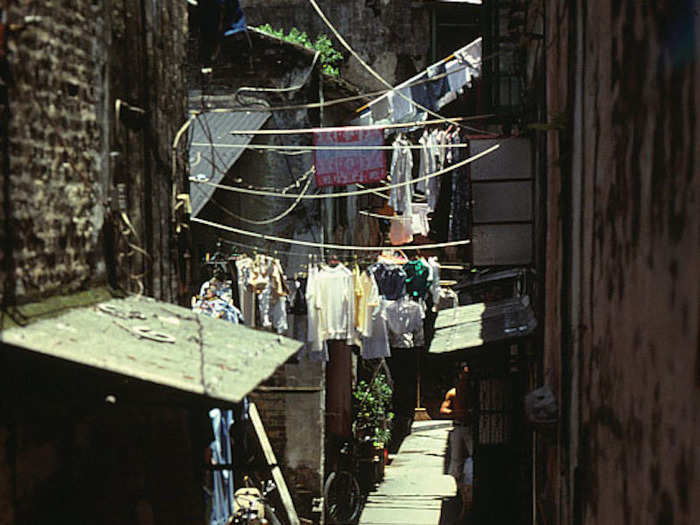
Calcada do Monte and Ruínas de São Paulo.
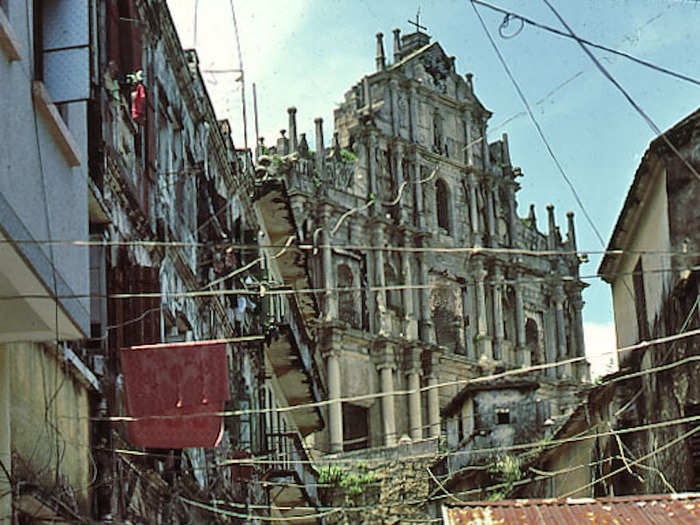
Baía de Hác Sá — Hac Sa Beach.
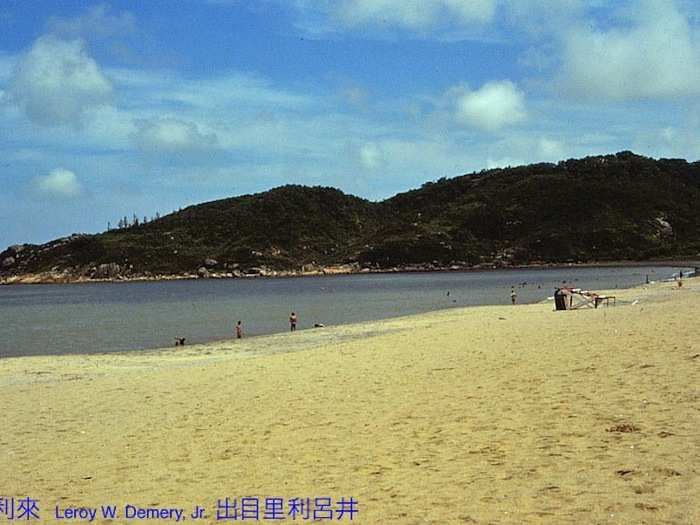
Baía de Hác Sá.
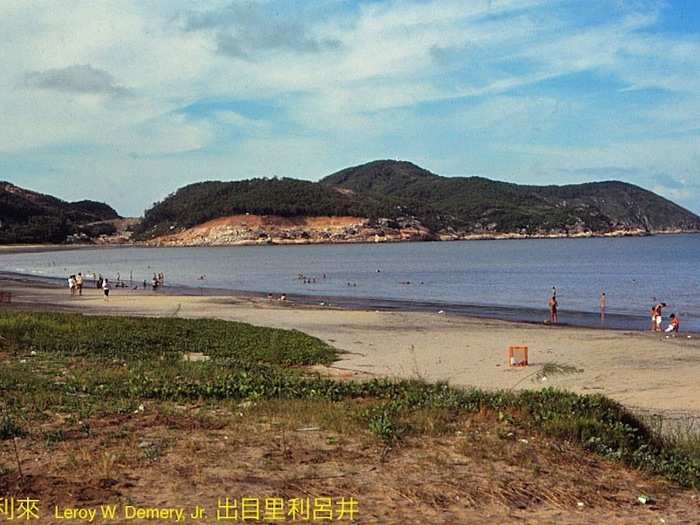
Looking across the Bahia da Praia Grande. "This was a sharp contrast to the bright lights of central Hong Kong," Demery writes.
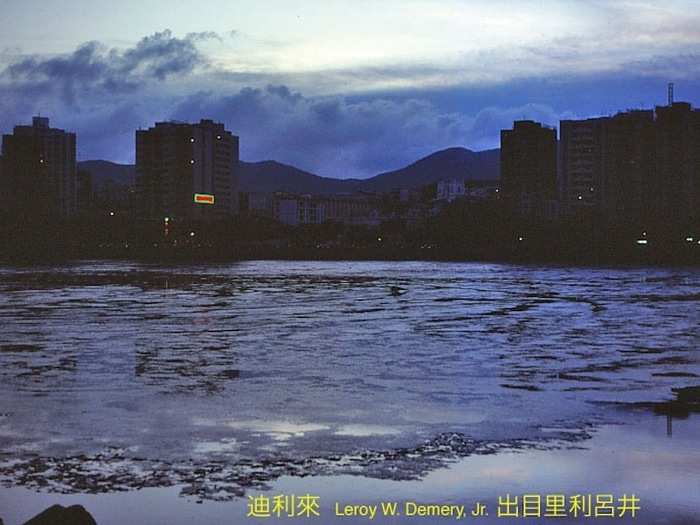
Near Taipa's bus terminal.
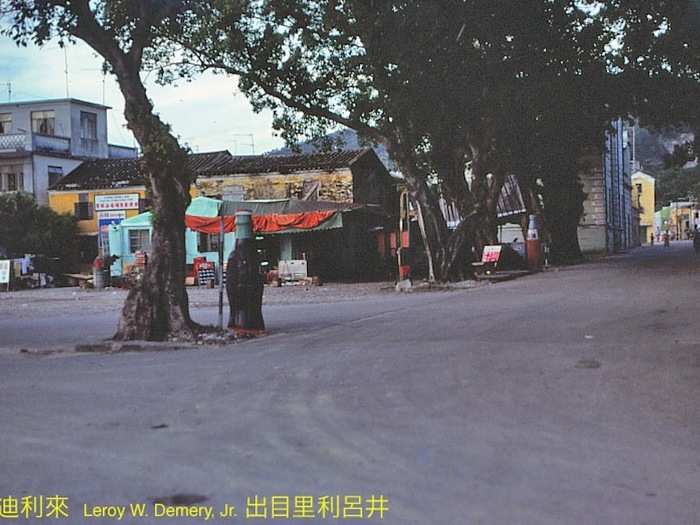
This location was near the bus terminal in Coloane town," Demery writes. "It had a very quiet atmosphere, almost like a village. This is almost certainly a 'vanished scene.'
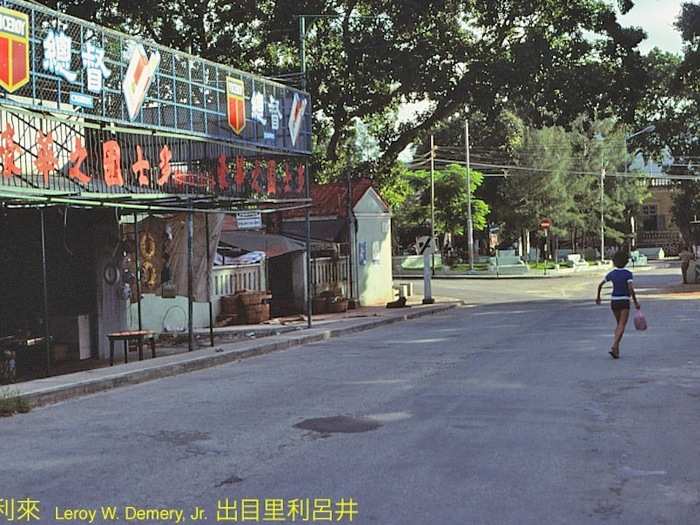
View from Colina da Guia. "This is also very much a 'vanished scene' because of extensive land reclamation," Demery says. "Today's Avenida Leste do Hipodromo is located approximately where the seawall, visible in the distance, stood in 1980."
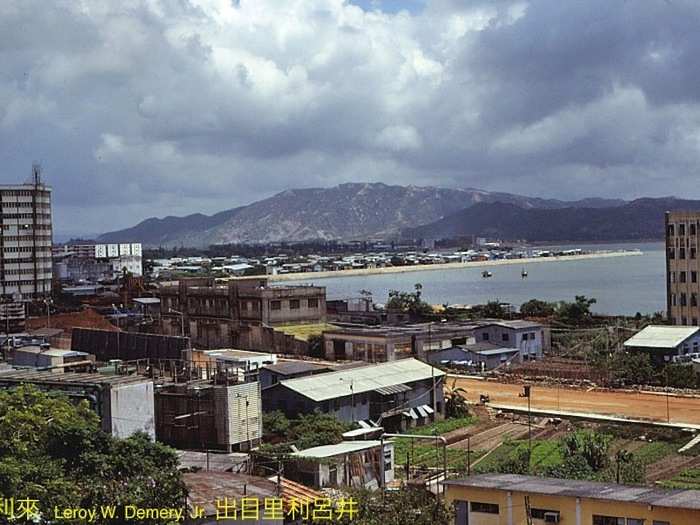
The "Casino Lisboa" sign after dark.
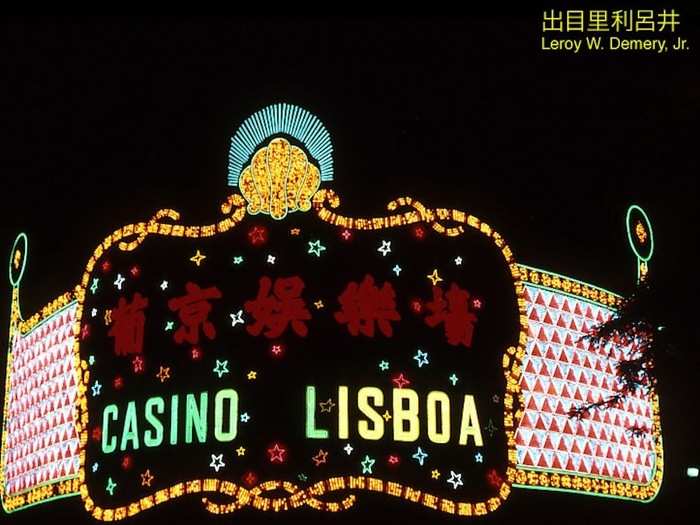
Popular Right Now
Popular Keywords
Advertisement
